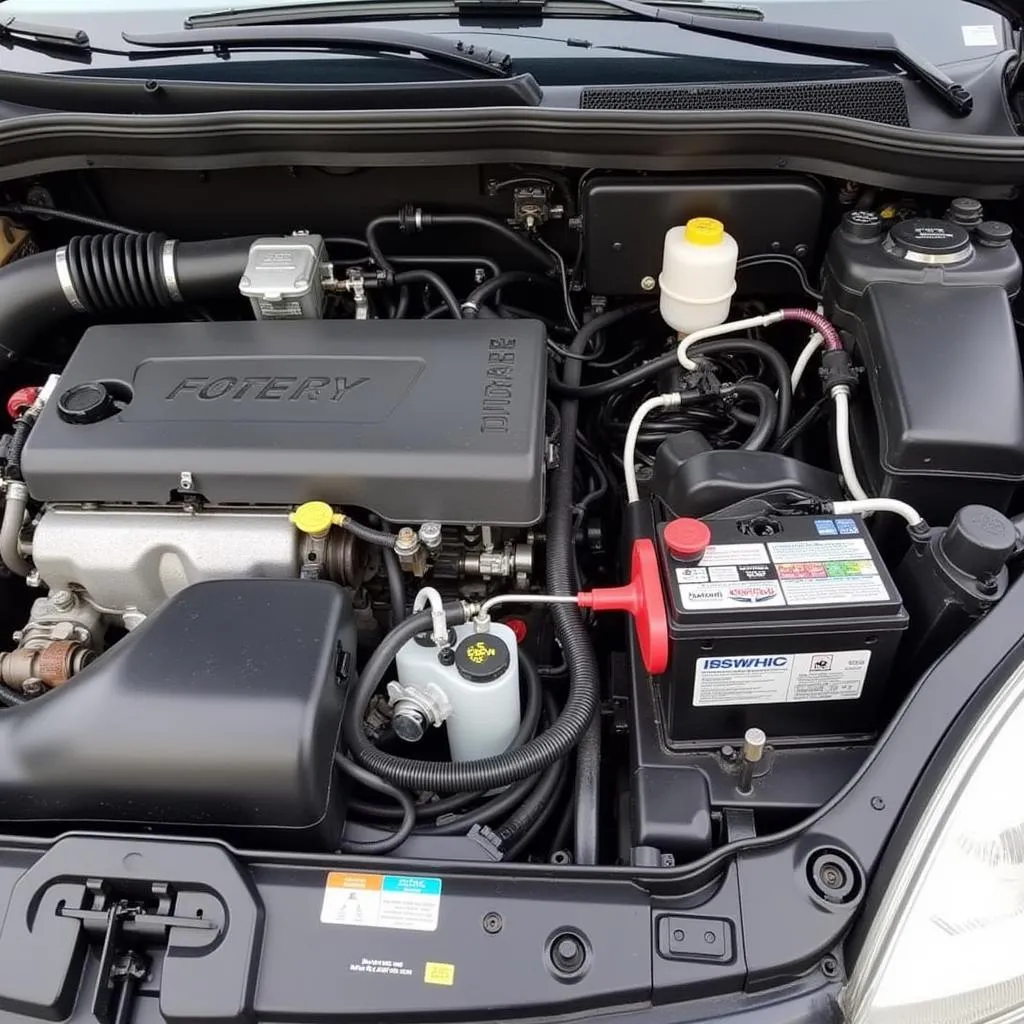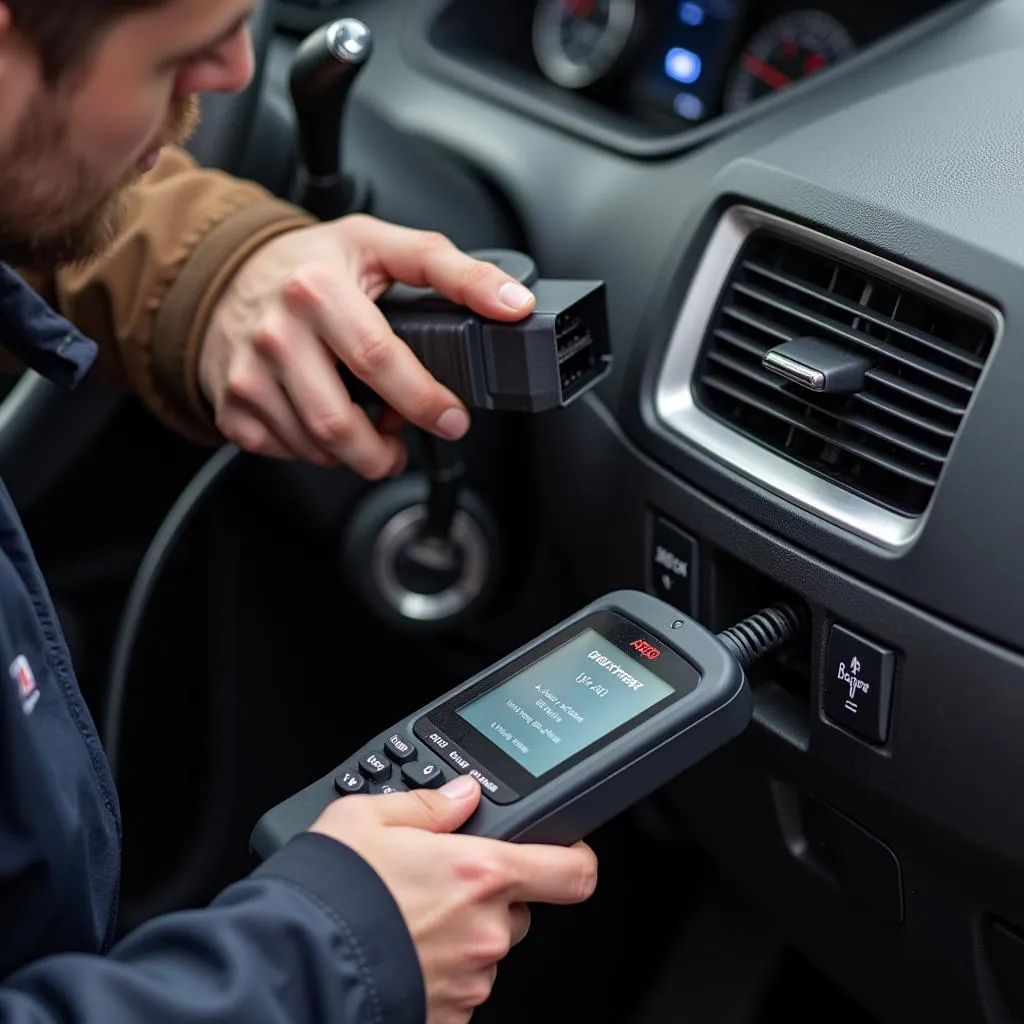Experiencing a frustrating scenario where your car starts fine initially but refuses to start again after a short drive? This is a common issue faced by car owners, and while it might seem baffling, there are several potential culprits behind this starting problem. This article delves into the common causes, possible solutions, and how a dealer scanner can be your best friend in diagnosing this frustrating situation.
Common Reasons Your Car Struggles to Start After Driving:
A car requires several components to work in perfect harmony for a successful start. When your car starts cold but then struggles after being driven, it often points to components affected by heat or those that control fuel and spark delivery. Here are some of the usual suspects:
1. Vapor Lock:
This happens when fuel in the fuel lines turns to vapor due to high engine bay temperatures. The vapor, less dense than liquid fuel, struggles to reach the engine, hindering starting.
2. Failing Ignition System Components:
Heat can impact components like the ignition coil, ignition module, or crankshaft position sensor. A failing coil under heat stress might struggle to supply sufficient spark for a restart.
3. Faulty Fuel Pump:
While a completely dead fuel pump will prevent your car from starting altogether, a weak or failing pump can be the culprit. It might struggle to deliver adequate fuel pressure, especially when warm.
4. Clogged Fuel Filter:
A clogged fuel filter restricts fuel flow to the engine. This restriction can be particularly problematic when the engine is warm and demands more fuel.
5. Sensor Malfunctions:
Several sensors, including the coolant temperature sensor or the mass airflow sensor, play a crucial role in the fuel-air mixture. If these sensors provide incorrect readings, especially when the engine is warm, it can lead to starting problems.
 Car Engine Bay Components
Car Engine Bay Components
How a Dealer Scanner Can Help Diagnose the Problem:
While the above-mentioned issues are common culprits, pinpointing the exact cause without the right tools can be challenging. That’s where a dealer scanner, also known as a professional-grade OBD-II scanner, becomes invaluable. Here’s how:
1. Reading Error Codes: A dealer scanner can access your car’s computer (ECU) and retrieve diagnostic trouble codes (DTCs). These codes act like digital breadcrumbs, leading you to the problematic system or component.
2. Live Data Analysis: These scanners can display live data from various sensors in real-time. This data is crucial in understanding how your car behaves when experiencing the starting issue, offering clues about potential sensor malfunctions or fuel pressure inconsistencies.
3. Component Activation: Certain dealer scanners allow you to activate components like the fuel pump or ignition system remotely. This is extremely helpful in verifying if these components are functioning correctly.
 Mechanic using a dealer scanner to diagnose a car problem
Mechanic using a dealer scanner to diagnose a car problem
What to Do if Your Car Has Trouble Starting After Driving:
1. Safety First: If your car struggles to start after driving, find a safe location away from traffic.
2. Let It Cool Down: If the issue seems related to overheating, allow your car to cool down for at least 30 minutes. This might be a temporary fix, allowing you to drive to a mechanic.
3. Check for Obvious Signs: Inspect for loose battery connections, damaged wiring, or any visible leaks.
4. Use a Dealer Scanner: If you own or have access to a dealer scanner, scan for error codes and analyze live data to get a better understanding of the problem.
5. Consult a Professional: If the problem persists, it’s best to consult a qualified mechanic.
Conclusion:
A car struggling to start after being driven can be a frustrating experience. By understanding the common causes and utilizing the diagnostic power of a dealer scanner, you can save time, money, and unnecessary headaches. Remember, a well-maintained car is a happy car! If you’re looking for reliable tools to keep your vehicle running smoothly, be sure to check out our selection of high-quality dealer scanners on auto problem diagnosis. They are designed to provide you with the information you need to make informed decisions about your car’s health.